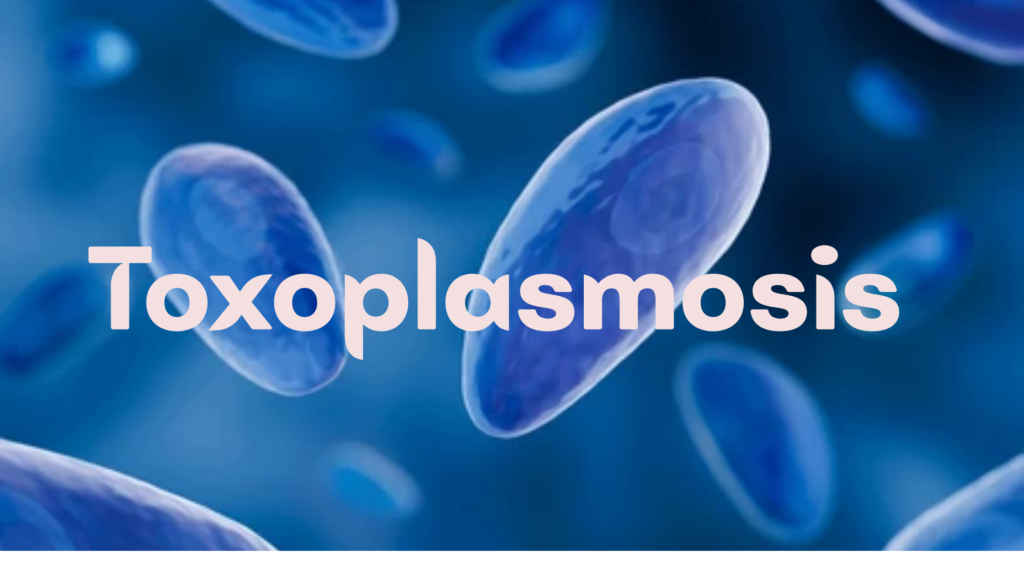What is Toxoplasmosis? 🐱🦠
Toxoplasmosis is an infection caused by the parasite Toxoplasma gondii. It can infect most warm-blooded animals, including humans. Cats are the primary hosts where the parasite can reproduce.
How is Toxoplasmosis Transmitted?
- Ingesting contaminated food or water with Toxoplasma eggs (oocysts) shed in cat feces 🐱💩
- Eating undercooked or raw meat containing parasite cysts (especially pork, lamb, or venison) 🍖
- Mother-to-child (congenital) transmission during pregnancy
- Organ transplantation or blood transfusion (rare)
Symptoms
- Most healthy people have no symptoms or mild flu-like symptoms (fever, muscle aches, swollen lymph nodes) 🤒
- In people with weakened immune systems (like HIV/AIDS patients), it can cause severe symptoms affecting the brain, eyes, or other organs 🧠👁️
- Congenital toxoplasmosis can cause miscarriage, stillbirth, or serious complications in the newborn (brain damage, vision loss)
Diagnosis
- Blood tests to detect antibodies against Toxoplasma gondii
- Imaging studies (CT or MRI) if brain infection is suspected
- Testing amniotic fluid in pregnant women if infection is suspected
Treatment
- Usually not needed for healthy people with no symptoms
- Antibiotics such as pyrimethamine, sulfadiazine, and folinic acid for severe cases or immunocompromised patients
- Treatment during pregnancy to reduce risk to the baby
Prevention
- Wash hands thoroughly after handling raw meat or soil
- Cook meat to safe temperatures
- Avoid drinking untreated water
- Pregnant women should avoid cleaning cat litter boxes or wear gloves and wash hands afterward
- Keep cats indoors and feed them commercial food to reduce infection risk
